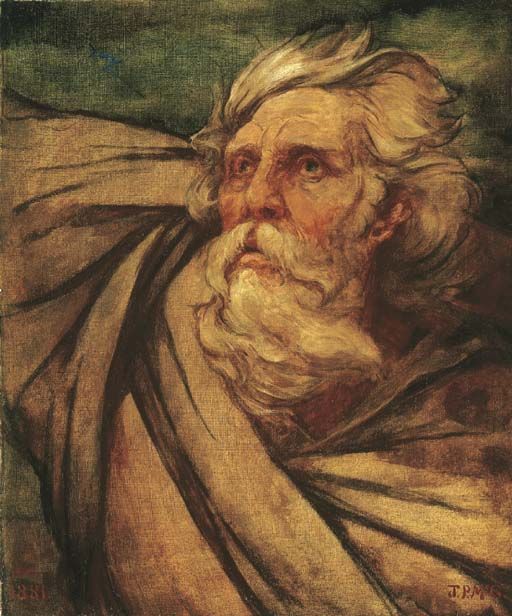
Thursday
I’m no George Will fan but, because he is as horrified by Trump and the current GOP as I am, we’re currently agreeing more than disagreeing. Our differences aside, I’ve always been impressed with Will’s literary allusions, especially when he described Mike Pence as a cross between Elmer Gantry and Uriah Heap.
Will made a couple of pointed comparisons in a recent column where, astonishingly, he advocates voting a straight Democratic ticket in November. As Will sees it, Trump is King Lear while his GOP enablers are T.S. Eliot’s Hollow Men.
First, Trump:
This unraveling presidency began with the Crybaby-in-Chief banging his spoon on his highchair tray to protest a photograph — a photograph — showing that his inauguration crowd the day before had been smaller than the one four years previous. Since then, this weak person’s idea of a strong person, this chest-pounding advertisement of his own gnawing insecurities, this low-rent Lear raging on his Twitter-heath has proven that the phrase malignant buffoon is not an oxymoron.
In one of my own columns on the Lear-Trump similarities, I have noted that Lear’s narcissism destroys his country:
Once Lear divides his kingdom into two, civil war is inevitable, and tensions between Cornwall and Albany arise immediately. We can note that Trump too has ridden divisiveness to the presidency, and has made no attempt—as all previous presidents have done—to reach out to the other side. Incidentally, nothing terrified Shakespeare more than civil strife, which is present in practically all of his history plays and in a fair number of his tragedies. The horrors of recent history, the War of the Roses and the Catholic-Protestant clashes, loomed large in his mind.
Increasingly, the specter of civil strife looms large in our own.
In Shakespeare’s play, there are two characters who speak truth to power (Kent and Cordelia) and one who is a notorious sycophant (Oswalt). The first two sacrifice everything to be true to their country, the third is willing to kill a blindman if his mistress tells him to. Guess how Will sees the current GOP:
A political party’s primary function is to bestow its imprimatur on candidates, thereby proclaiming: This is who we are. In 2016, the Republican Party gave its principal nomination to a vulgarian and then toiled to elect him. And to stock Congress with invertebrates whose unswerving abjectness has enabled his institutional vandalism, who have voiced no serious objections to his Niagara of lies, and whom T.S. Eliot anticipated:
We are the hollow men . . .
Our dried voices, when
We whisper together
Are quiet and meaningless
As wind in dry grass
or rats’ feet over broken glass . . .
The “hollow men” are those who blow whichever way the wind blows, which for the GOP is currently in a Trump direction. Like the lost souls in Dante’s Limbo that are Eliot’s inspiration, they dare not meet accusatory eyes. The following passage reminds me of senators trying to avoid journalists asking about Trump’s latest tweet:
Unreal City,
Under the brown fog of a winter dawn,
A crowd flowed over London Bridge, so many,
I had not thought death had undone so many.
Sighs, short and infrequent, were exhaled,
And each man fixed his eyes before his feet.
In Inferno, Dante’s guide would rather move on to other sinners than spend a moment more gazing at such people. Dante learns that “they never were alive” and that no one, either in heaven or in hell, wants anything more to do with them. Think how many current-day GOP legislators fit the following description:
Shape without form, shade without color,
Paralyzed force, gesture without motion;
Those who have crossed
With direct eyes, to death’s other Kingdom
Remember us–if at all–not as lost
Violent souls, but only
As the hollow men,
The stuffed men.
Some people believe that history will not deal kindly with Trump’s GOP enablers. Dante, Eliot, and Will suggest that history will not even remember them.

